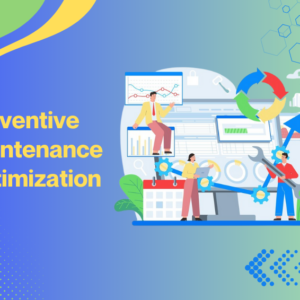Artificial Intelligence – Human Intelligence Processes by Computers
Artificial intelligence is progressing rapidly, from driving cars, to SIRI, to other machines and equipment in all industry, including healthcare. AI was found as academic discipline. Analytical, human-inspired, and humanized artificial intelligence are now known as its three types. Basically it is the simulation of human intelligence processes by computers.
Artificial Intelligence is categorized as either weak or strong. Another name for Artificial Intelligence is weak or strong AI, as it is designed and trained for a particular task and its details. A strong AI is able to find a solution without human intervention, as it generalizes human cognitive abilities.
What is Artificial Intelligence?
Artificial Intelligence, often abbreviated as AI, refers to the development of computer systems that can perform tasks that typically require human intelligence. These tasks encompass learning, reasoning, problem-solving, perception, and language understanding. AI systems simulate human cognitive functions, opening doors to limitless possibilities.
AI can be used to automate tasks, improve decision-making processes, develop new products or services, and even create art.
Fears due to AI?
Artificial Intelligence causes general public to have great fears about artificial intelligence and improbable expectations and how it will change the workplace and life in general. But researchers argue that AI will simply improve products and services, not replace the humans because humans are the once that selects what data should be used for training an AI program.
Artificial Intelligence consists of
- Machine Learning – is a way of computer to act without programming.
- Automation – is a system or process that functions automatically such as robotics that is programmed to perform high-volume, repeatable tasks that humans perform normally at much lower rate.
- Natural Language Processing (NLP) – this program emphasis on spam detection. It identifies the subject line and text of emails and comes to conclusion whether it is junk mail or not. This is one of the oldest and best example of NLP, which also includes text translation, sentiment analysis and speech recognition.
- Self-driving Cars – it pilots a vehicle while staying in a given lane, avoiding unexpected obstructions or pedestrians.
- Robotics – they are used mostly in assembly lines in manufacturing industries such as cars. It is also used by NASA to move large objects in space.
Myths and Facts of AI
As Artificial Intelligence progresses, there is always a nagging tension that it can cause harm to humanity. To differentiate between Myths and Facts:
| MYTH | FACT |
|
|
The myths are generally formed because we are spending more time with machines and might lose our identities. So far we see that intelligence enables control, humans are able to control tigers because we are smarter, not due to physical strength.
Applications of AI
AI has seamlessly integrated into our daily lives, simplifying and enhancing various aspects. Some common applications include below.
AI in Education
Artificial intelligence can give educators more time in improving the education delivery system as they will be spending less time grading the exams and tests. There is involvement of Chatbots that provide immediate customer service. These chatbots answer all the basic queries and save time of people and customer service agents too.
AI in Business
Automation is applied to highly repetitive tasks. These tasks are based on CRM platforms and machine learning algorithms that are integrated into analytics. Automation has taken away many job positions and has become a talking point among academics and IT analysts.
AI in Finance
Here your firm or organization is provided with the applications that collect personal data and provide financial suggestions or advice to do the needful. For instance, IBM Watson program helps in process of buying or selling home.
AI in Law
Here, automation of documentation has helped saved time as it can be overwhelming task for humans. There are lsao built in programmed questions and answers that are used during cross examination.
AI in Healthcare
AI is transforming healthcare by enhancing disease diagnosis, drug discovery, and personalized treatment plans. Machine learning algorithms can analyze medical images, such as X-rays and MRIs, with remarkable accuracy, aiding doctors in early disease detection.
Conclusion
Artificial intelligence is an ever-growing field whose potential uses range far beyond our current understanding. It promises us not only convenience but also safety when utilized correctly, allowing us both greater freedom while ensuring our security against threats we may not yet know exist.






